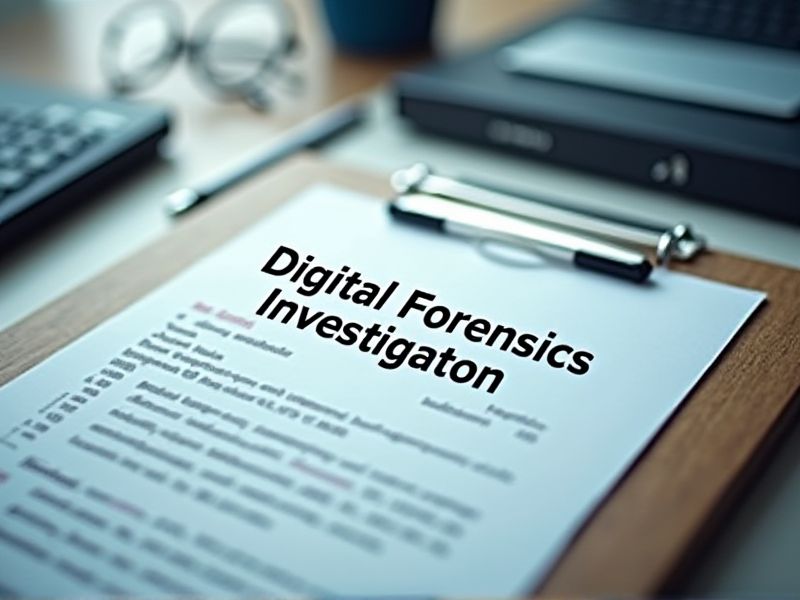
In the field of digital forensics, rapidly evolving technologies demand specialized expertise to accurately retrieve and analyze electronic evidence. Certifications ensure that investigators remain adept at handling complex cyber environments while adhering to legal protocols. Possessing the right certifications not only enhances credibility but also expands career opportunities. Some important certifications you may need for a Digital Forensics Investigator role include specific industry-recognized credentials.
EnCase Certified Examiner (EnCE)
The EnCase Certified Examiner (EnCE) certification demonstrates proficiency in using EnCase software, which is extensively employed in digital forensic investigations. Employers often require or prefer candidates with EnCE certification due to its validation of technical skills in conducting computer and mobile device forensic examinations. It provides a structured approach to forensic analysis, ensuring investigations adhere to legal and professional standards. Earning the EnCE signifies a commitment to ongoing professional development, enhancing the investigator's credibility in the field.
Certified Computer Examiner (CCE)
The Certified Computer Examiner (CCE) credential establishes a baseline of competency and credibility for digital forensics investigators, which is critical in maintaining trust during legal proceedings. By ensuring that investigators possess the necessary technical skills and ethical standards, the CCE certification can enhance the accuracy and reliability of digital evidence collection. It aids in standardizing methodologies across forensic examinations, reducing errors and increasing collaboration among investigators. Organizations often require certified professionals to mitigate the risks associated with data breaches and digital crimes effectively.
Certified Forensic Computer Examiner (CFCE)
Obtaining the Certified Forensic Computer Examiner (CFCE) credential ensures a digital forensics investigator possesses standardized skills and knowledge validated by industry-recognized benchmarks. This certification equips professionals with the ability to handle and analyze digital evidence rigorously, thus supporting sound legal processes. Organizations entrust CFCE-certified individuals to enhance credibility in court by providing verifiable findings. Certified examiners are better prepared for evolving technological challenges, which strengthens investigative outcomes.
GIAC Certified Forensic Examiner (GCFE)
The GIAC Certified Forensic Examiner (GCFE) credential is needed because it validates an investigator's expertise in conducting in-depth digital forensic examinations, a critical skill in modern cybersecurity landscapes. Having the GCFE certification indicates a proficiency in using advanced tools to recover and analyze data from a variety of digital devices. This certification is essential for ensuring that investigators can effectively gather and preserve digital evidence, crucial for legal proceedings. Organizations trust professionals with GCFE certification to maintain the integrity of their digital investigations, which in turn helps them prevent future breaches and understand past incidents.
GIAC Certified Forensic Analyst (GCFA)
Digital Forensics Investigators often handle complex evidence examination; possessing a GIAC Certified Forensic Analyst (GCFA) certification equips professionals with a thorough understanding of forensic techniques and methodologies. This certification ensures investigators are proficient in advanced Windows and Linux forensics, which directly enhances their ability to investigate and respond to security incidents. Employers seeking reliable and skilled forensic investigators often prioritize candidates with a GCFA due to the rigorous training involved. GCFA provides assurance of staying updated with the latest forensic tools and practices, aligning with industry standards for effective digital investigations.
Certified Cyber Forensics Professional (CCFP)
The demand for a Certified Cyber Forensics Professional (CCFP) arises due to the increasing frequency of cybercrimes, which require highly skilled investigators. Possessing CCFP certification validates expertise in forensic methodologies, legal considerations, and digital evidence handling, which are crucial for thorough investigations. Cyber forensics professionals face constantly evolving technologies and new attack vectors, making continuous education and certification necessary to stay updated. Organizations rely on CCFP-certified professionals to ensure the integrity of investigations, thereby minimizing legal risks and maintaining compliance with industry standards.
Certified Digital Forensics Examiner (CDFE)
A Certified Digital Forensics Examiner (CDFE) is crucial for Digital Forensics Investigators because it provides standardized training that ensures a consistent approach to evidence collection and analysis. Obtaining CDFE certification signifies expertise, enhancing credibility in legal proceedings where digital evidence plays a pivotal role. Incorporation of CDFE-certified professionals can increase the accuracy and reliability of digital investigations, as they are rigorously trained in current technologies and methodologies. CDFE certification also helps investigators stay updated with evolving cyber threats and forensic techniques, crucial for maintaining the integrity of digital evidence.
AccessData Certified Examiner (ACE)
The AccessData Certified Examiner (ACE) certification provides Digital Forensics Investigators with proficiency in using AccessData's suite of tools, enhancing investigative efficiency. When investigators hold ACE certification, there is an increase in their credibility and trustworthiness due to standardized knowledge and skills verification. Organizations often seek ACE-certified professionals to ensure adherence to industry best practices and methodologies in handling digital evidence. Having an ACE certification can also lead to more accurate interpretations of digital data, which plays a crucial role in supporting legal proceedings and cybercrime investigations.
Certified Information Systems Security Professional (CISSP)
Possessing a CISSP certification equips a Digital Forensics Investigator with a broad understanding of information security, crucial for identifying security breaches and data tampering. CISSP's focus on risk management ensures investigators can assess potential threats and secure digital environments. In-depth knowledge of network structures gained through CISSP helps in tracking unauthorized data access or anomalies. Ethical and legal foundations taught in the certification guide investigators in adhering to legal standards while handling sensitive information.
Certified Ethical Hacker (CEH)
Organizations face increasing cyber threats, leading to a demand for thorough understanding of hacking techniques. Certified Ethical Hackers possess skills to anticipate and detect vulnerabilities, enhancing digital forensics investigations. Knowledge in ethical hacking aids in identifying data breaches and recovering valuable evidence. CEH training equips investigators with the ability to think like hackers, improving incident response and cybersecurity measures.
Summary
When you obtain certifications as a Digital Forensics Investigator, your credibility and skillset in the field significantly enhance. This heightened competence can lead to greater job opportunities and potentially higher salaries. Organizations tend to trust certified professionals more, increasing your chances of handling high-profile cases. Acquiring these certifications also keeps you updated with the latest tools and methodologies in digital forensics.
